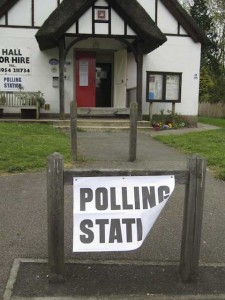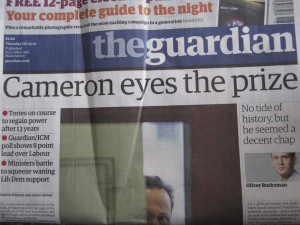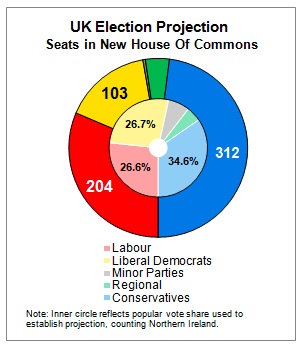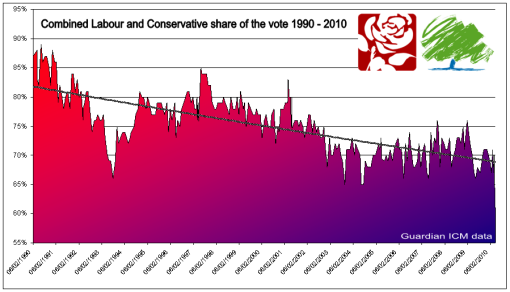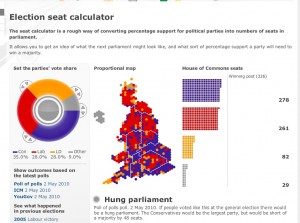I found it hard to sleep last night, partly because I was brooding on today’s election. Lying awake, I was reminded of a metaphor which has struck me often in the years since Tony Blair ousted the Tories in 1997. In this the British electorate appears as a vast, lumbering beast — a kind of sleepy Leviathan. The Beast is not very interested in politics; in fact, most of the time it would prefer not to have to think about it at all. But every so often the buzzing of hornets (all of whom, in my dreams, look like Nick Robinson, the BBC’s Political Editor) annoys it into briefly paying attention to the fact that it has to make a decision. The Beast doesn’t like making decisions, so it tends to put off thinking about them until the last possible moment. And when it does decide, its choice is largely determined by two elementary factors. The first is boredom. The second is a vague — and not terribly enthusiastic — feeling that it’s time to let the other lot have a go.
This is the way all British elections are decided. Occasionally, the Beast makes its choice with a show of enthusiasm. This happened in 1997, for the obvious reason that the Tories had become so unutterably boring, incompetent and corrupt that even the apolitical Beast had noticed. In the 2002 and 2005 elections it opted to extend the New Labour hegemony with declining enthusiasm. But it was clear to some (most?) of us, that next time round it would be inclined to give the other lot a go. The succession of Gordon Brown clinched it — as Tony Blair had feared, and as I wrote about at the time.
As this interminable election campaign unfolded, the Beast was initially startled by a new kind of hornet — in this case the televised leaders’ debates. There was a lot of irritating buzzing about a ‘third way’ involving the Lib Dems and political realignment and constitutional reform. This initially sparked some interest in the Beast, but on inspection seemed to offer nothing but impenetrable complexity: it was a signpost to what looked like a thicket rather than a beaten path. So in the end the Beast decided that it was all too complicated and reverted to its time-honoured decision-rule.
The interesting thing, though, is that it does so with a distinct lack of enthusiasm. As I write, the BBC election seat calculator is predicting Con 284, Lab 257 LibDem 80 Others 29.
But FiveThirtyEight, the US analytical site which did such insightful work on the polls in the Obama election is predicting an interestingly different result: Cons 312, Lab 204 LibDem 103. I’m inclined to believe that this is what the Beast intends: a minority Tory government. But that probably means another election in October. Which only goes to show that the Beast isn’t much good at joined-up thinking. It can go back to sleep tomorrow — but not for long.

